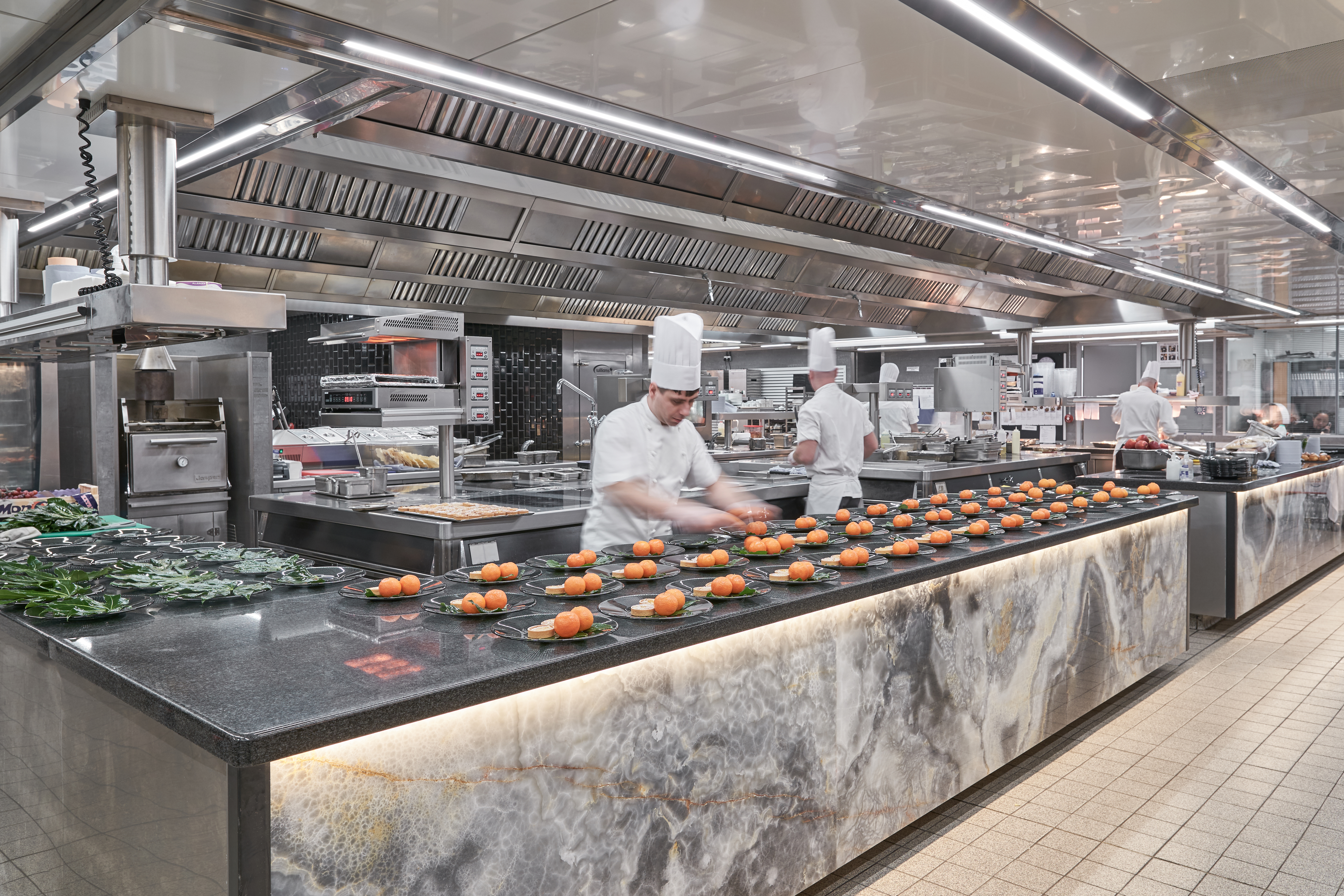From open-plan live kitchen experiences to immersive chef tables, hotels should consider re-inventing their dining offering whilst exploring the opportunities for kitchen efficiency. TAG Catering Equipment UK Ltd talks to Eat.Drink.Sleep about hotel kitchen design and how efficiency can work harmoniously with, not at the expense of, the theatrical environment.
“We’re finding an increasing number of hotel restaurants are needing to adapt their offering in order to attract diners, both from within the hotel and general public” commented Tyron Stephens-Smith, Creative & Project Director from the London based commercial kitchen designer.
“It’s now more critical than ever for hotels to offer something unique, to draw people in for a dining experience.”
TAG recently scooped the top Overall Winner accolade at the ceda Grand Prix Awards 2019 for a project at a 5-star Park Lane London hotel.
“The original kitchen was over 30 years old and the client wanted a modern, technological kitchen again providing longevity, reliability and flexibility” comments Tyron.
“Our design created a sense of theatre within the basement kitchen with unobstructed views from the private Chef’s Table room. This kitchen now has a restaurant aesthetic, with various focal points including multiple DeManincor ranges, Josper charcoal oven, pizza oven and bespoke marble pass, all helping to create an immersive experience.”
TAG also proposed the concept and benefits of siting the hotels Wine Room next door to the Chef’s Table, where you can easily move between both rooms via a connecting door, elevating the Chef’s Table experience. The installation includes a bespoke, temperature-controlled room with electronically reactive glass for added privacy.
“Now the hotel can provide discrete wine tastings as a standalone offering, further increasing revenue, as well as adding to the new immersive Chef’s Table experience. Something that clientele would expect at this level of dining” added Tyron.
Despite the added aesthetics and pressure of the theatrical environment, the efficiency of the kitchen remains at the core of the design, true to TAG’s ethos.
“We carried out a detailed 18-month analysis which identified cyclical and fluctuating operational demands including the exclusive Chef’s Table menu, main restaurant, breakfast, in-room dining and banquet kitchens” comments Tyron.
“Based on this analysis, the finished layout has ergonomics at the heart of the workflow, with efficiencies designed to minimize labour cost and time. Areas can expand into adjacent areas when needed but shrink when not, maximizing the flexibility of the space. The improved ergonomics created the open kitchen and crucial aesthetics needed from the chef’s table.
“This was all achieved, with help in part, by switching to induction, the latest equipment technologies and rotating the main ranges by 90 degrees”.
The latest equipment technologies include a DeManincor refrigeration pack which is remotely monitored for temperature data, energy usage and alerts for any faults. This system brings the refrigeration running costs down to an average of just 4 kW per hour for the entire kitchen. No compressors are in view which has allowed for a more efficient and aesthetically appealing kitchen, which is crucial for the open-plan design. This is also quieter whilst running at a lower temperature.
As a result, the hotel has reported a reduction in energy bills of up to £75,000 per year, as well as further running costs with greater staff efficiencies and fluidity in the whole kitchen, by reducing chef footprint.
It’s clear that with intelligent design and application of new technologies, hotels are able to increase efficiency and reduce operating costs. All whilst providing a relevant, all-encompassing customer experience with improved visual appeal, crucial to compete in this uniquely challenging industry.

